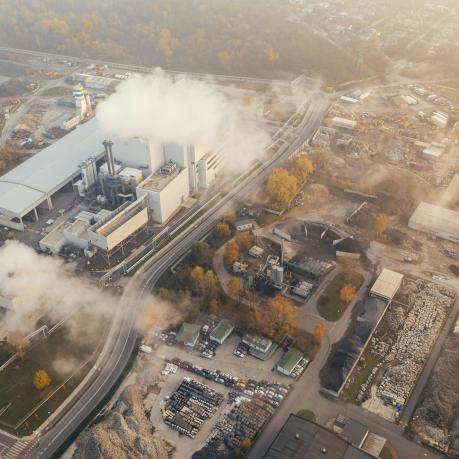
Ambitious goals for emissions trading - ICAP Status Report 2024
News publ. 10. Apr 2024
News publ. 05. Jul 2018
Sustainability initiatives aim to make the extraction of raw materials more responsible through the introduction of international standards. adelphi and its partners have assessed a number of initiatives and their connections to one another and published the results in a new study.
Germany imports mineral raw materials from more than 160 countries - currently worth around 66 billion Euros. This also includes a considerable size of indirect raw material imports in the form of semi-finished and finished goods: for metal ores, about five to six times its tonnage is imported indirectly. How can we ensure that these raw materials are produced in an environmentally friendly manner and with respect for human rights?
Many actors along the complex supply chain of raw materials continuously develop new corporate guidelines while also committing to sustainability initiatives and introducing environmental, social, and transparency standards. This is necessary in order to meet the ecological and social challenges in the mining and processing of raw materials. But what is it that makes sustainability initiatives successful and how can the challenges in the sector be more successfully addressed?
In order to find answers to these questions, adelphi, together with the Federal Institute for Geosciences and Natural Resources (BGR), the Federal Environment Agency (UBA) and the Center for Social Responsibility in Mining (CSRM) at the Australian University of Queensland, has compiled the results of three research projects and prepared recommendations for various actors along raw material supply chains and for political decision-makers in a short paper as part of the BGR series "Commodity Top News".
The results of the new study, "Mapping Sustainability Standards Systems for Mining and Mineral Supply Chains," show that the large number of initiatives, their diverse thematic and regional focuses, and the application of differing high standards in certain areas result in duplication, gaps, and a lack of efficiency.
"The dynamics in the field of voluntary sustainability initiatives are incredibly high, but these initiatives still do not cover certain key environmental and social issues,” says adelphi’s project manager Christine Scholl.
The study identifies these gaps, for example, in issues such as financial security for the closure costs of mines and the use of renewable energies or water extraction by the mining industry. On the other hand, the study points out that harmonisation and mutual recognition of standards of different sustainability initiatives would reduce auditing costs and avoid varying requirements for the mining industry - e.g. on the part of raw material customers. International reference standards such as those of the ILO (International Labour Organisation) and the Organisation for Economic Co-operation and Development (OECD) are particularly helpful here. In addition, civil society and local communities are not sufficiently involved in decision-making processes in affected countries. Ultimately, strengthening oversight of the raw materials sector in the countries themselves can and should also contribute to implementing measures and reducing the effort required for implementation. After all, a country's governance capacities are key to the effective implementation of environmental and social standards.
"The current harmonisation efforts of sustainability initiatives are a decisive step on the way to reducing the negative environmental and social impacts of the sector" says adelphi’s senior project manager Lukas Rüttinger. "However, it requires further efforts by all actors along raw material supply chains to make the sector more responsible and to achieve a sustainable contribution to improving governance in countries that produce raw materials.
You find the study here.